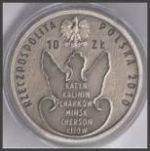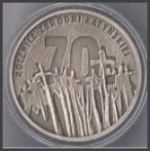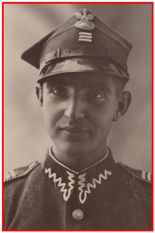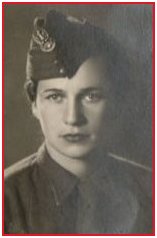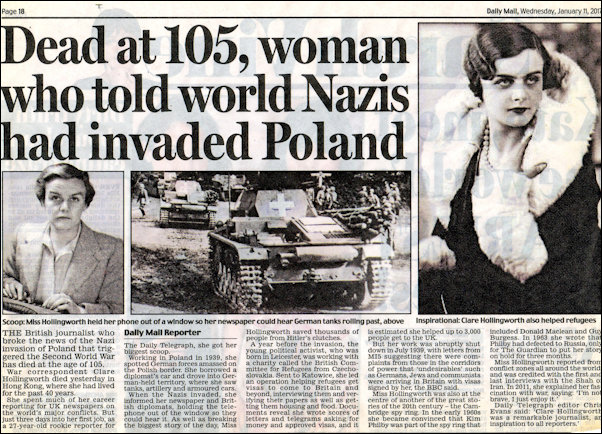Anna's Parents
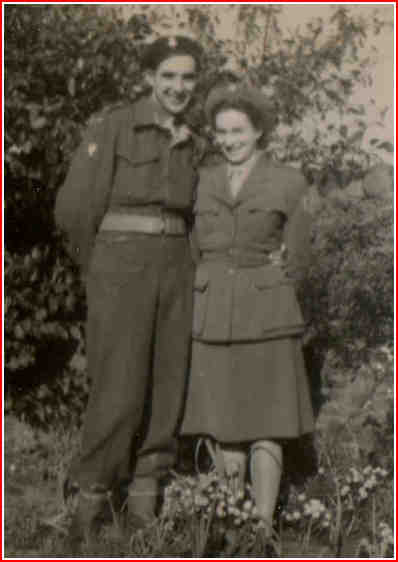
My mother and father in their military uniforms in Carnoustie - 1945
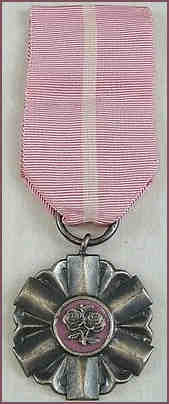
Poland's 'Long Service' (for marriage) Medal awarded to our parent's on their Golden Wedding Anniversary in 1995
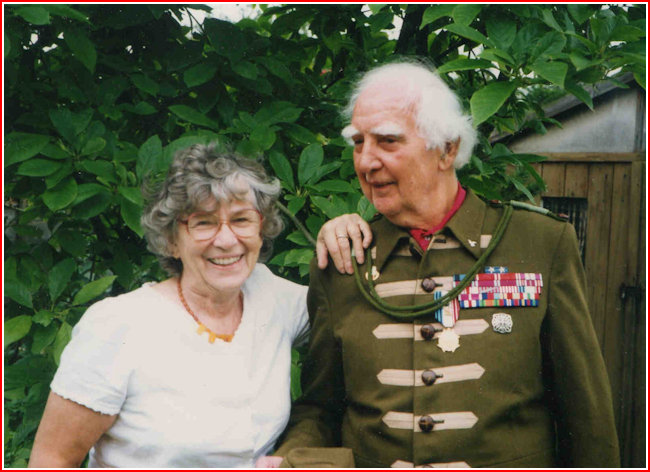
And in 1993 just 44 years into their marriage
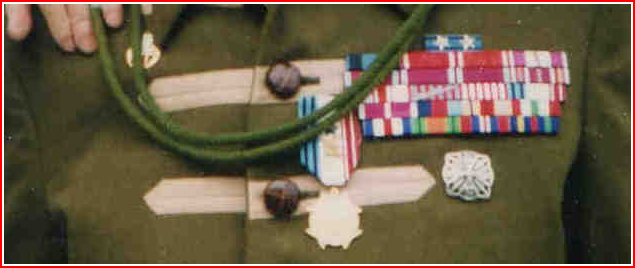
Detail of my father's medal ribbons as seen on his uniform above with the two 'wound stars' clearly visible as well as the ribbons for the 39-45 Star and the Africa Star (4th row 2nd and 3rd ribbon bars)
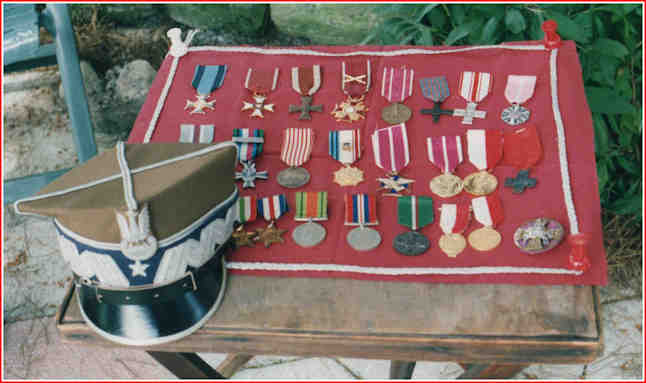
My father's medals and cap - Top Row (l to r) : Virtuti Militari | Polonia Restituta | Cross of Valour/Krzyż Walecznych | Gold Cross of Merit with Swords/Złoty Krzyż Zasługi z mieczami | Army Medal for War 1939-45/ Medal Wojskowy 1939-1945 | Monte Cassino Cross/Krzyż Monte Cassino | Cross of September Campaign 1939/Krzyż Kampanii Wrzesniowej 1939 | Marriage Longevity Medal/Medal za Długoletnie Pożycie Małżeńskie - Centre Row (l to r) : Medal for the War of 1939/Medal Za Udział w Wojnie Obronnej 1939 | Polish Armed Forces in the West Military Action Cross/Krzyż Czynu Bojowego Polskich Sił Zbrojnych na Zachodzie | National Treasury Award/Skarb Narodowy | Polish Falcon Association in Great Britain Medal of Merit | 'Sokół' Merit Medal |Gold National Treasury Award/Złoty Skarb Narodowy | The 1966 Millenium Medal/Medal Tysiąclecia 1966 Polski Chrześcijańskiej Millenium | 30th Anniversary of the 5th Kresowa Infantry Division Cross/30-lecie 5 Kresowa Dywizja Piechoty. Bottom Row (l to r) : United Kingdom Italy Star | United Kingdom France & Germany Star | British Defence Medal | British War Medal | Monte Cassino Memorial Medal 1969 (Scouting Movement)/ ZHP 1969 Medal Monte Cassino | Award not yet identified | Award not yet identified | 'Sokół' Rank Pin (Not shown - Wound Badge with two stars) - Many thanks to Andrzejku for the assist in identifying some of these medals.
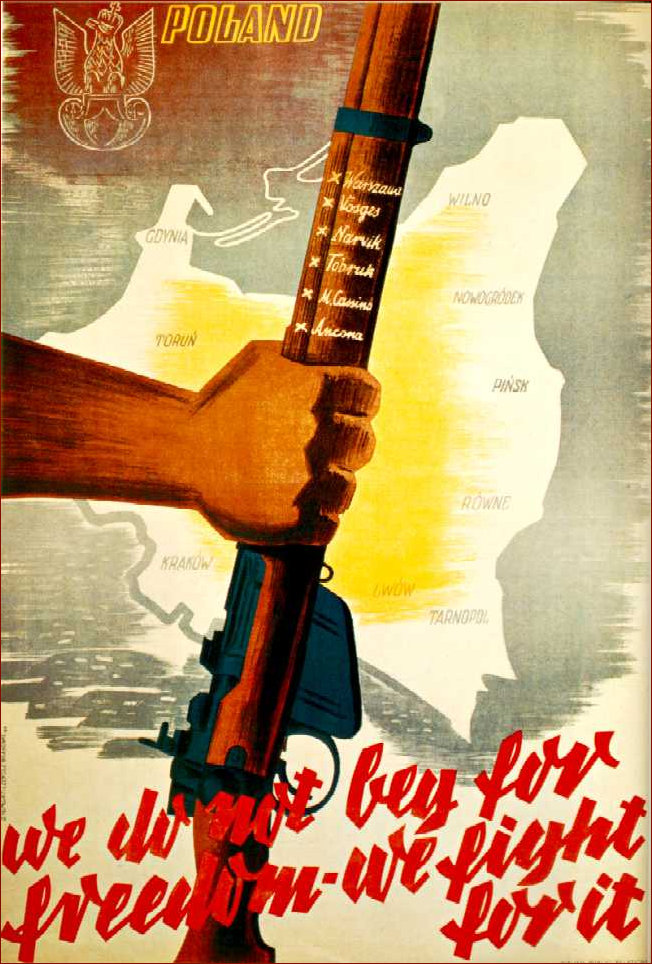
We do not beg for freedom - we fight for it / My nie błagamy o wolność - my o nią walczymy
It seems most Poles subscribed to this mantra whether in the air, on the sea, on land behind enemy lines or joining with the Allied divisions so it is fitting it appears on the page dedicated to my parents.
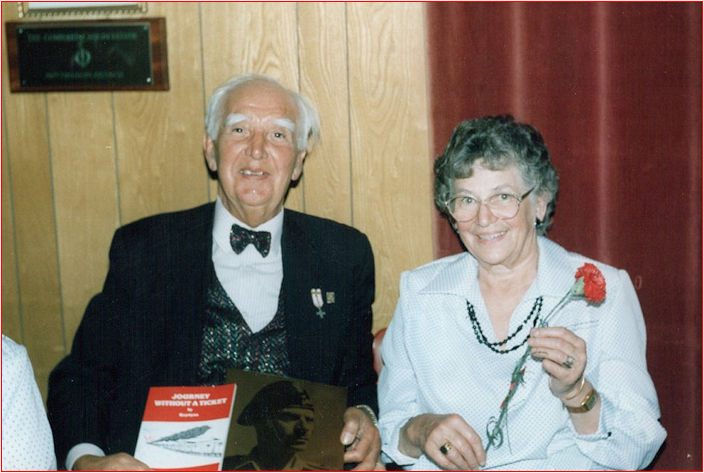
And the journey continues - my parents in 1988
I have dated this picture as 1988 as the book "To England Through Siberia: Journey without a Ticket" by Zdzisława Krystyna Kawecka was originally published that year. My mother experienced the same route which is reproduced in its entirety here and as both authors have stated this history needed to be told and recorded!
How my father cheated Katyn
The Tragedy at Katyn 2010
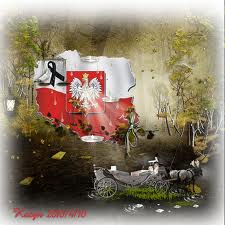 The spur for the idea of this book / web-page came on 10th April 2010 when the news of an airborne tragedy in Smolensk/Katyń started filtering through on the 24-hour news channels.
The spur for the idea of this book / web-page came on 10th April 2010 when the news of an airborne tragedy in Smolensk/Katyń started filtering through on the 24-hour news channels.
My first thought was to let my sister know as I knew she would not have her television switched on at that time and the only way to forward the news was by text (sms). I also needed to get in touch with another friend, who although now a nationalised French citizen, has Polish roots, as do my sister and I, and who was currently in the Caribbean whilst the lift [elevator] in her Paris appartement was being repaired. The time difference alone would have precluded her from hearing the news as it happened. What I really wanted to do was to discuss this with my Dad who is our own family hero and political guru – Dad died a couple of years ago and yet still we want to consult him on all these important issues.
Before I continue, I want to say that the whole point of these reminiscences of a pretty full life are down to the “six degrees of separation” theory. Only in my case, a lot of times I don’t even have to do six stages, hence the title “A Brush With ….” – how could I have known that Katyń could have impacted on my life twice with branches spreading elsewhere prior to 10.04.10?
My father was a soldier in the Polish Army during the 1939-45 conflict known as World War II. He had been a cadet 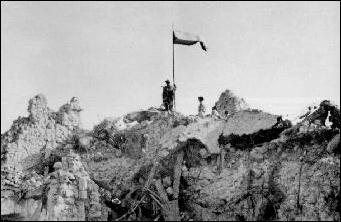 prior to this and was always meant to be officer material. As with many of his peers he was captured due to Polands’ woefully poor preparation for the conflict. He started his captivity enduring forced marching [my mother chose the more comfortable option of travelling by cattle truck from Kraków to Siberia]. Thanks to a bout of dysentery, the day the Katyń massacre occurred my father was enduring stomach cramps of the most excruciating kind. So, was he lucky not to get a bullet in the back of the head? To cut a long story short, he did not escape a bullet in the head – he got that in Monte Cassino in 1944 and survived – the victims of Katyń did not, and so – yes it was lucky his bullet entered his skull at an angle in the forehead and traversed through the top of his ear leaving a hole the size of a desiccated pea. My first brush with Katyń then.
prior to this and was always meant to be officer material. As with many of his peers he was captured due to Polands’ woefully poor preparation for the conflict. He started his captivity enduring forced marching [my mother chose the more comfortable option of travelling by cattle truck from Kraków to Siberia]. Thanks to a bout of dysentery, the day the Katyń massacre occurred my father was enduring stomach cramps of the most excruciating kind. So, was he lucky not to get a bullet in the back of the head? To cut a long story short, he did not escape a bullet in the head – he got that in Monte Cassino in 1944 and survived – the victims of Katyń did not, and so – yes it was lucky his bullet entered his skull at an angle in the forehead and traversed through the top of his ear leaving a hole the size of a desiccated pea. My first brush with Katyń then.
I re-married in 1994 into a family of four brothers and a couple of years ago one of my sisters'-in-law became acquainted with a new colleague who had a unique sounding first name. On finding it was a diminutive of a Polish name my sister-in-law, who lives in High Wycombe, said to her colleague “Oh, that sounds like the first name of my sister-in-law who lives in Nottingham – do you know her?” OK – so what were the chances of Jagoda knowing who I was – remarkably, she did. When my sister and I were children, Jagoda’s father and ours were inextricably linked with members of the government-in-exile set up by the Poles in the UK during the war in an effort to preserve the nationality of all the Poles who had chosen to become political emigrés rather than live under a Communist regime. This included setting up the Polish Scout Movement, Youth Associations and all the trappings of a government in exile with military knowledge. Jagoda’s father eventually became the Polish Prezydent in exile having had the baton passed to him by the original holder of the post. It was he who was sought out by Lech Walęsa after Solidarity brought about the downfall of the Communist stranglehold. Her father was killed in the aeroplane crash on 10th April – the man whose wife had dangled me on her lap and whose daughter I grew up alongside during our formative years.
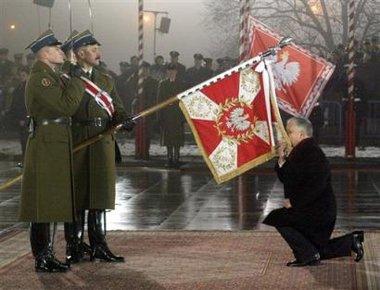
This is my tribute to all those who died on that day and to my parents who never gave up their own identities despite being forced to start a new life from scratch in the UK and gave my sister and I such a rich upbringing in a dual culture. May they rest in everlasting peace.
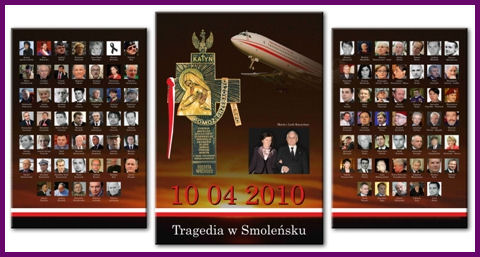
New Katyń Museum here
My Mother
Preparing for these pages, I found what I had written about her just after her death in 2000.
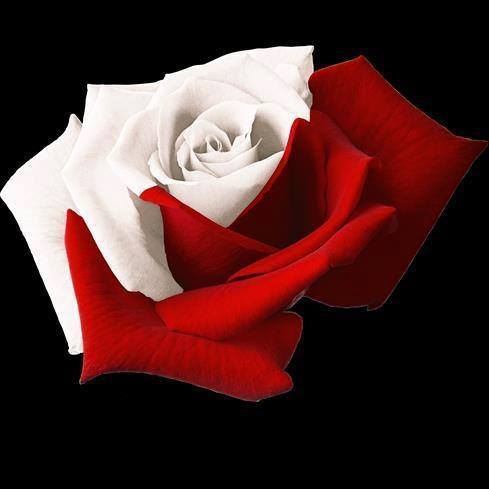
I think she would have loved this as she adored all living things and creatures!
MAMA
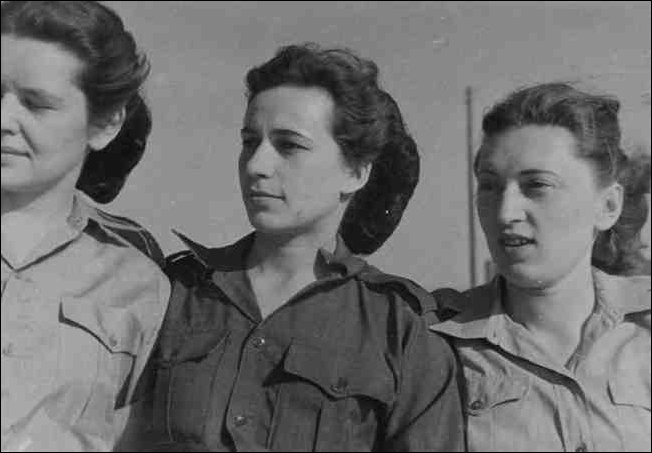
I love this picture of my mother (centre) in Egypt in 1944 whilst serving as a theatre nurse in the military mobile hospital
I wonder if we ever fully understand the impact people make on our lives and in particular how one person can influence what we become?
What or who am I? I’m asking this question now, because my Mother died just a few short weeks ago and I want to justify to myself and anyone who wishes to read this, what I think she was to me and what I am as a result of being her daughter.
Today, my sister reminded me that our mother had a great love of nature. She had grown up in a “puszcza” and her father was a leśnik. The thought evokes Forests and all that is contained within that expansive word – the wonders of the undergrowth, the multitude of wildlife in all forms, the life within life itself. Mama also had, as I remember, not only a great love, but a high regard and very great respect for horses. If you can imagine a physical link, like hugging someone, where their being encompasses yours with its warmth and strength – somehow Mama instilled in me that great respect of horses. I know very little of these animals, rarely coming into close proximity of them, but I do know that when I first discovered the French eat horse meat, I was physically sickened and abhorred by the idea. A couple of years ago, I “met” my first horse at the famous Nottingham Goose Fair. It’s a tragedy that the Police have to show a presence “mounted” on their steeds at what should be a “fun” event. Andrew and I were walking to the Fair and had to stop before crossing a road, we happened to stop near the mounted police, being me and wanting (after all this time) to experience the knowledge that was ingrained in my mother, I asked the officer if I could touch the animal. I’m not sure who was most surprised at the request, but it was refused – at first, then he said OK – and I went straight for the nose, the officer suggested I stroke the flank instead. That was my first and last (so far) contact with this magnificent beast and it didn’t do a lot for me – but looking into the animal’s eyes did. It was easy to be reverent in its company, not for any reason other than to acknowledge, in wonderment, it’s sheer beauty of existence. I already understood from my mother the power of the horse, now I understood it from the horse itself. No wonder those in close proximity to these magnificent beasts respect them!
I have grown to become a conservationist, and when I embrace a cause, it is whole-heartedly, otherwise it is not worth anything to me. I was one before it became a trend. I have been told I have “green fingers”, I don’t remember anyone teaching me – but Mama and I both liked to mess about with pot plants and in the garden. In fact, I made mud pies from about the age of two years – I’m not sure how I can weave that into any memory my mother evoked in me, but I’ve never been afraid of getting my hands dirty in the garden. Having been reared in a terraced house with only a small garden patch in the back – how did I instinctively know to appreciate flora and fauna if there wasn’t some link back to my mother?
Fashion dictates of the 40s and 50s encouraged my mother to have a “fox fur” wrap, complete with head, paws and tail. I don’t know what I thought of this really, other than I know my mother had inordinate pride in this fashion accessory. (OK, before you ask, yes I am anti-fur). Because she had pride in it, I believed that I must treat it with respect also – but my measure of respect was manifested by desperately hoping that by loving it as mother did and by stroking it whenever I could (and she wasn’t looking – because I don’t think I was really supposed to touch it) I would somehow bring it back to life. I remember occasionally wondering how I would explain that to her, but of course I never had to go beyond the imagination because it did not happen. I also wondered how I would feed it as it had a satin lining where its tummy should have been!
Christmas – oh what a joy and I never found out how she did it. Without fail, every year on Christmas Eve, we were sent to get dressed for the evening celebration and however hard we tried to trick her, however quickly we got dressed and thundered down those stairs – when we opened the door – there was the Christmas Tree, beautifully decorated and presents stashed below – I never did find out how she did that …..
Stories – Mama wove magic into the stories about her life. She never made light of the seriousness of some of the situations she found herself in, but she had a great sense of humour.
Take the turkey story – on the smallholding they lived on, they were all but self-sufficient – hens laid eggs, chickens were reared, mushrooms were picked, vegetables were grown, wild roots and herbs were in abundance. There was also an old rooster or turkey (I forget which) which had probably turned rogue and so, being a danger and nuisance and of no further value, they decided it was for the pot – except the bird wreaked its own revenge, however long they boiled and simmered it, the meat was inedible and the stock (or lack of it) unusable. Nature fought back ……
Mama used to despair of my love of onions - in Siberia she had (literally) survived on onions and vowed never to eat one again. I know she laughed at my consumption – but I wonder what she felt and I wonder why I need them so much?
Her story of interrogation by the Russians is so matter of fact you’d think she was writing a film script. She shared a cell and knew that one of the inmates was a spy. She’d set little traps to expose which of her cellmates it was. So she was ready for any entrapments set by the spy herself. When she was dragged into interrogation, she kept focused by looking at the map in the room, because on it were the daily changes pertaining to the war effort. Most people would be quivering wrecks bent on just surviving without too much pain – not Mama, she had it all planned out. At work I am often described as logical and organised and people rely on me to “get things sorted.” Now I wonder where that comes from?
My favourite story, as I remember her telling it to me is the moment she first met Father. To me, as an adult and a smoker, it grows with significance every time I think of it. She was a nurse in a desert hospital in Egypt when the wounded from Monte Cassino started pouring in. As the patients were brought in, they were put into categories for immediate and future treatment. Something made her turn in the direction of Father – apparently, although his head was swathed in bloodied and filthy bandages, she “imagined” that beneath all this was an incredibly handsome face. He was also, in her mind, in a raving delirium, hands crawling up and down his body, the classic symptom of someone searching for something. Actually, he was quite conscious and was searching for something, his kit-bag – he wanted a cigarette. But, to all outward appearances he was in the throes of a deep-rooted delirium, he was also, like anyone half-conscious, muttering away incoherently. As she drew closer, she realised it was a temper tantrum and that this person was grumbling away because he wanted his cigarettes. Loathe to explain to him that he should be thankful that he was alive and that all that he had about his body were the tattered remains of his uniform and certainly no kit-bag or cigarettes, she reached into the apron of her uniform and took out of it the half-nub end of her last precious cigarette, lit it and offered it to him. No sooner had he taken a drag of it, he yelled out that she was tricking him, that he had no intention of smoking such rubbish and not only stubbed it out but demolished it in the process, making it totally irretrievable! Mama was devastated, she had been hanging on to the thought of enjoying that cigarette at the end of her shift. Having exerted himself in his exuberance, Father then fell into a deep sleep and didn’t have to worry about whether or not he could have a smoke. Mama finishes the story there, she never went on to say whether she felt sufficiently frustrated to want to put hot needles into the soles of his feet (I would have!) or how she got hold of any other cigarettes, but that is not important. I can’t remember when they gave up smoking, but certainly there used to be cigarettes in the house, even though I cannot remember either of them smoking in front of us.
My most cherished memories of Mama are from childhood, because as we grew up, being an extremely enlightened parent, she became first a friend and in time turned to us for help. One of the best tributes paid to her are by independent friends, who have all said that they had fond memories of her because she was like a mother to them. I cannot say that of any of their mothers, I don’t wish to sound disrespectful, but they were always Mrs So and So, So and Sos’ mother – not mine.
I have been married twice and although I respect both spouses parents, I do not feel that they match up to my own.
Mama was an extraordinary and special person and that is how I wish to remember her – no frills.
As a result of her tragic death, for it is a tragedy for all of us, I have received, completely without any prior intention, the most precious gift – one that I had not given a thought to ever, nor even felt I would ever want. I have been given Mamas’ wedding ring. When she died I thought that she would be buried with it, apparently that is not the norm (we didn’t know that) and the Funeral Directors retrieved and returned all the jewellery she was wearing at the time of death. If she was not buried in it, then I thought either my Father or sister would have it – quite rightly, in this instance the pecking order should put me the younger daughter, last. Father took the ring first, then decided against having it and asked my sister if I would like it – she said she knew I would like it as we had touched on the subject. I was thrilled and astounded to receive it and as I write this, it is firmly locked on my finger as it has been since the moment I received it, and will stay there for my lifetime. As coming to terms with Mamas’ death has not been easy, I have to say that having the ring in physical contact gives me a degree of great comfort – I cannot explain how it works, maybe the same way as all the things in my life that were influenced by her, only this time, I know and have chosen to have this part of her with me.
Her Book - 'Historia mojej podrozy z Polski do Anglii przez "Raj Sowecki"'
('The Story of my journey from Poland to England via the "Soviet Paradise"')
This was a mammoth task, translating my mother's memories (or memoirs), but it was done with love and can now be found here in its entirety, complete with some additional research material I found fascinating while I was metaphorically following in her tracks on the internet. On 6th February 2017 I created the page that now houses the whole adventure, the first instalment having appeared on 3rd March 2017. I think of Ann Bell's character (Mrs Jefferson) in 'Tenko' scribbling away to keep a record of what was happening to and around a brave group of individuals who had been thrust into a nightmare existence and survived.
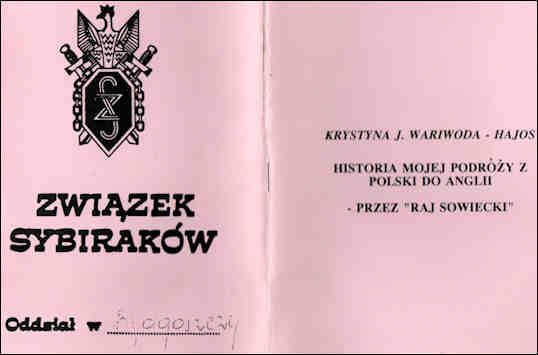
The Front and Back covers of my mothers memories of her journey from Poland to England - the Booklet was printed by the Association of Siberian Deportees known as the 'Sybiraki' - Bydgoszcz branch.
My mother was born in Kraków who also have a branch of the revitalised Association of Siberian Deportees
To read more about the Association and its history please visit the memoirs page.
Poland Invaded 1939
Article as it appeared in the Daily Mail dated Wednesday, 11th January 2017
By Jennifer Newton for MailOnline | |
First female British war correspondent who broke the news of the Nazi invasion of Poland that started World War II has died, aged 105
Clare Hollingworth broke news of Nazi invasion of Poland in World War II
British journalist spent Christmas 1938 in the resort of Kitzbuhel, Austria
The upmarket resort had been overrun with Nazis celebrating the festive period
There, journalist Clare was able to infiltrate the Third Reich for her latest story
She saw how Nazis were uneasy about Christmas - the birth of a Jewish child
The first British female war correspondent Clare Hollingworth has died, aged 105. Ms Hollingworth broke the news of the Nazi invasion of Poland that started World War II. In 1939, as a rookie reporter in Poland, she borrowed a diplomat's car and drove into German-held territory, where she saw tanks, armoured cars and artillery massing. When the Nazis launched their invasion days later, she called British diplomats and her newspaper to alert them, hanging the phone out the window so they could hear it for themselves.
As Christmas 1938 loomed, families across the country gathered together for the festive period unsure of what the future would hold. Nazi Germany had seized Czechoslovakia and annexed parts of Austria and the world nervously looked on trying to predict Hitler's next move. But rather than stay at home in Leicester and celebrate Christmas in the traditional way, journalist Ms Hollingworth knew there was a story to seek out. The then-27-year-old knew she had to spend her last Christmas before the Second World War in the Austrian resort of Kitzbuhel – trying to infiltrate the Nazis, which later landed her the biggest scoop of her career.
And the story of her extraordinary Christmas in Austria is part of a new book about her life called Of Fortunes and War, written by her great-nephew Patrick Garrett. The book details how Clare and her husband Vandeleur Robinson went to Kitzbuhel, which had been a popular destination for well-heeled foreign visitors for more than 10 years. The former King Edward VIII and Ian Fleming, the author who created James Bond were regular visitors to the resort. But by 1938, it was overrun by members of the Third Reich, who clogged up the roads with their large black Mercedes cars. The town's famous hotel, the Grand Hotel had been bedecked with Nazi flags and Jewish guests were told they would be no longer welcome as it became the favourite place to stay for senior Nazis. Knowing there was a story to be had, Clare and Vandeleur stayed at a farmhouse in the town and even took skiing lessons. On the face of it, Kitzbuhel seemed like the perfect setting to celebrate a traditional Austrian alpine Christmas. But given the rise of Hitler, Christmas that year would be something Clare would never forget as the Nazis put their own spin on the festive season. The book tells how the journalist found the Nazis uneasy celebrating Christmas – given it is the celebration of the birth of a Jewish child and how the festive symbol of a star was feared similar to the Star of David or even the Soviet Red Star. Therefore, Clare noted how rather than celebrate on December 25, the Nazis decided to mark their own festival on December 21, on the night of the winter solstice. The celebration saw them honouring the Norse god Odin and hold a torch light parade. The only thing that resembled Christmas was the singing of the carol Silent Night, but even then the words were changed at the Third Reich's request. Then three days later on Christmas Eve, Clare witnessed all of the children in Kitzbuhel herded into a school gym. There they were ordered to listen to an address from Hitler's right-hand man Josef Goebbels which he said was going out to the 'entire German Fatherland.' And even though the residents of Kitzbuhel tried to celebrate the Christmas season as they always had, they too had to change. Nearly all Christmas greetings in the local newspaper were signed off with the phrase 'Heil Hitler.' But during her time in Kitzbuhel, Clare never turned off her reporter's brain and with the town being crammed with senior Nazis, it was the perfect place to overhear gossip. Many thought they could speak freely as they were still inside the borders of the Third Reich following the annexing of Austria and all the time, Clare was picking up on useful snippets of information. And by the time her holiday came to an end, she and her husband wrote a series of articles for the Fabian Society. In her articles, she mused how the Nazis were just waiting to strike their next target and she wrote 'Was it now the turn of the Balkans?'
Meanwhile her work thanks to her time in Kitzbuhel had obviously been noticed as just eight months later, she landed a job as a reporter on the Daily Telegraph. A week later in August 1939, she found herself in Poland staying with a British consul-general, who had a diplomatic car. The Germans had closed the road across the border to all vehicles apart from those carrying the flag - and Clare knew this and thought back to her Christmas experience. So she immediately asked to borrow the car, to go on a fact-finding mission into Germany, and, as it happened, pick up a few essentials like aspirin and white wine, then unavailable in Poland. The 'great gust of wind' which kicked off her career happened as she drove back along the road to Poland.
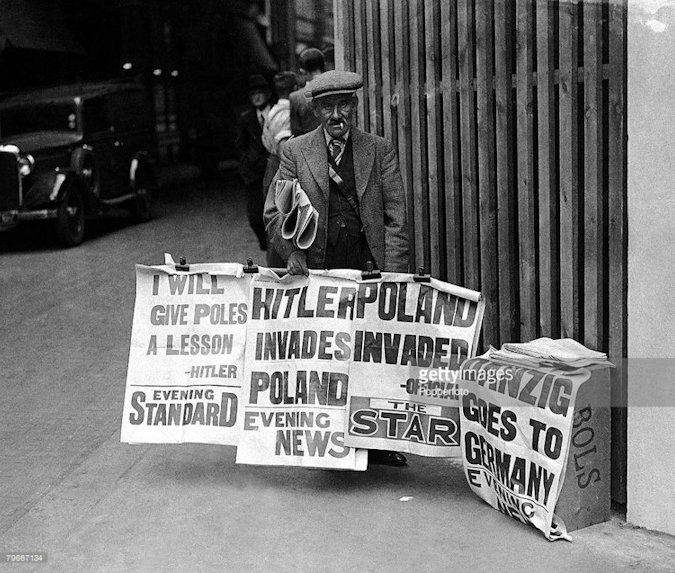
Image courtesy & © of Getty
Clare looked down into the valley and saw for the first time 'scores, if not hundreds of tanks' below her. These tanks were the forces of von Rundstedt's Army Group South, supported by Reichenau's 10th Army. '1,000 tanks massed on Polish border, Ten divisions reported ready for swift stroke,' shouted the headline after she called it into her boss, who was based in Warsaw. Three days later, she awoke to the sound of gun fire: it was September 1, the war had started, and she called Robin Hankey, the Second Secretary of the British Embassy in Warsaw. '[I said] Robin, the war's begun. He said rubbish, they are still negotiating. So I put the phone out of the window so he could hear them rolling in,' she recalled during Desert Island Discs in 1999.
Page refreshed : 13th August 2020 (G)
